10 books you need to buy
[ad_1]
From April 4 to 7, Gostiny Dvor will host the spring International Fair of Intellectual Literature non/fiction. Weekend has selected books that are worth paying attention to.
Lev Rubinstein “Crawling Line”
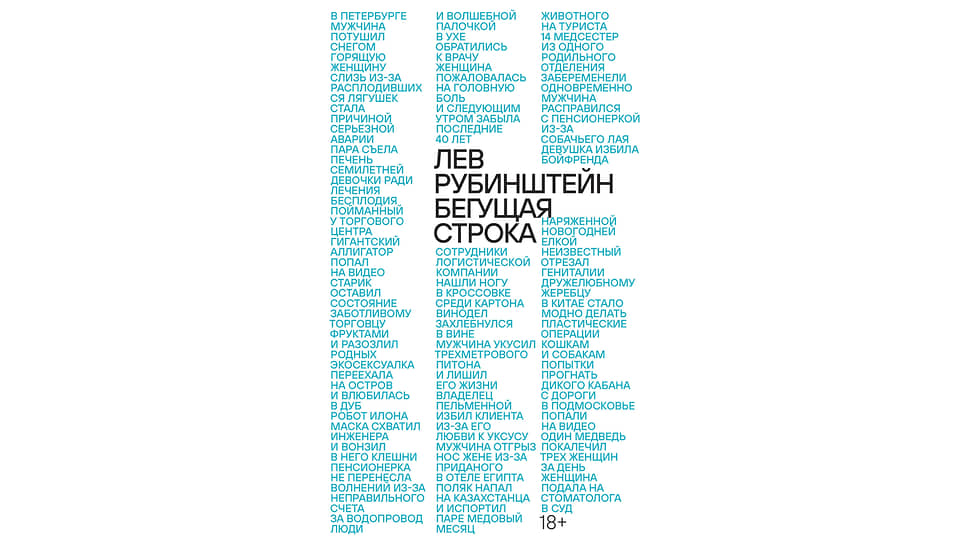
Photo: New Literary Review
New Literary Review
Lev Rubinstein, poet, essayist, one of the leaders of Moscow conceptualism (although the word “leader,” of course, does not fit well with his tenderly sly image), died in January of this year. Shortly before his death, he managed to compose his last book. This is a fun experiment, clearly inheriting the conceptualist experiments of the 1970s, but working with the material of modern media. “Crawling Line” is a large collage. The material here is all kinds of clickbait news headlines. “A subway rat shared a donut with a friend and got caught on video,” “A porn model found her school teacher among her subscribers and was surprised,” “A calendar with naked firefighters and koalas was released in Australia,” and so on and so forth. Rubinstein collected them for a long time and posted them on his blog, and then composed a kind of poem from these idiotic scraps. Individual titles become the point of inspiration for essayistic passages – caustic, witty and slightly elegiac, as always with Rubinstein.
Victor Krivulin “Poems 1964–1984”, “Prose”

Photo: Ivan Limbach Publishing House
Publishing house of Ivan Limbach
A long-awaited event – the first two books of the three-volume collection of Viktor Krivulin, one of the most significant Russian poets of the second half of the twentieth century. Its scale remained unconscious for a long time, largely due to the lack of full-fledged publications. This absence is explained by the strategies of the author himself: a former ideologist of the Leningrad underground of the 1970s, Krivulin, in general, remained an irreconcilable underground man even after the end of the Soviet Union. In addition, he was a poet-philosopher, a metaphysician who thought in big ideas, in thousands of years of history, but also in big forms. His Soviet-era poems form large-scale book cycles, exquisitely majestic structures in which one text picks up the theme of another. These cycles make up most of the first volume. The second centers on the first complete and verified publication of Shmona, an avant-garde one-sentence novel written under the influence of KGB raids.
Tom Stoppard “Leopoldstadt”
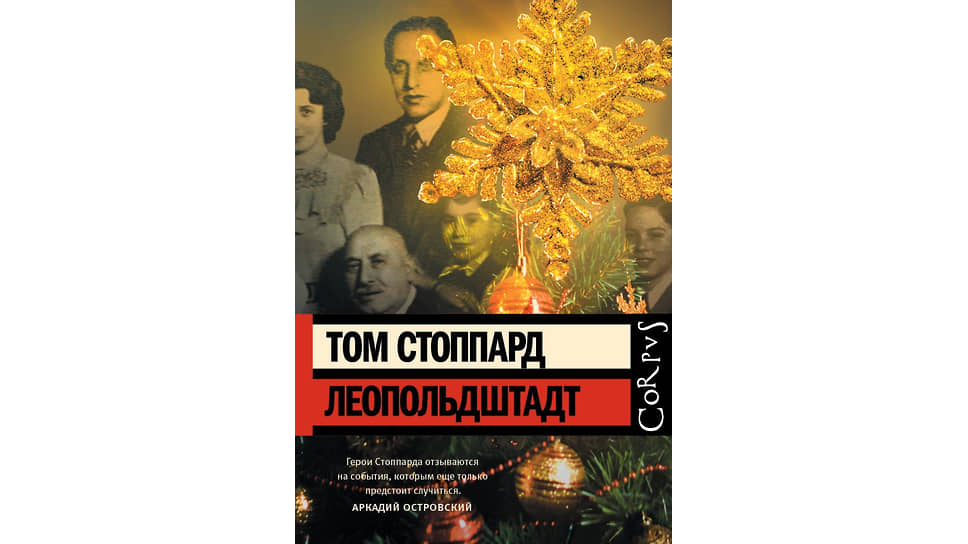
Photo: Corpus
Corpus
Translation Arkady Ostrovsky
The latest play produced in Britain in 2020 is Tom Stoppard, a classic of postmodern drama, the author of Rosencrantz and Guildenstern Are Dead, Arcadia and The Shores of Utopia. One of Stoppard’s talents is to put large romantic narratives into dramatic form. The action of “Leopoldstadt” covers the period from 1900 to 1955. At its center is a clan of assimilated Austrian Jewish intellectuals. The background is the upheavals and catastrophes of the twentieth century. The subjects of conversation are Zionism, Nazism, Bolshevism, Freudianism, European culture and Jewish traditions. Many of the characters die in the Holocaust, like all of Stoppard’s own grandparents, so Leopoldstadt is an extremely personal play for him. British critics have dubbed it Stoppard’s “Schindler’s List” and almost unanimously call it a masterpiece – perhaps a farewell one.
Mario di Andrade “Macunaima, the hero who has no character”

Photo: Ad Marginem Press
Ad Marginem Press
Translation Vladimir Kultygin
Writer, critic and musicologist Mario de Andrade is a central figure of Brazilian modernism, and his magnum opus, published in 1928, is Macunaima, the Hero of No Character. As often happens with young literature, this text, from the point of view of the reader of the old world, is quite paradoxical. On the one hand, distinctly avant-garde prose with a lot of language experiments, surreal paradoxes, curiosities and kinks; on the other hand, a text whose task is nation-building, the search for the “Brazilian idea.” Plot: Indian Macunaima, born in the Amazon forest, goes to Sao Paulo to experience city life. However, the seemingly simple plot turns into a grandiose mythological narrative, continuous transformation of the whole world, creation and apocalypse, as is what happens in real Brazilian myths.
Yves Bonnefoy “Digamma”

Photo: Jaromir Hladik Press – Rhinoceros
Jaromir Hladik Press – Rhinoceros
Translation Mark Greenberg
French prose writer, poet, essayist, art historian, translator of Shakespeare and Petrarch Yves Bonnefoy was friends with Andre Breton and Paul Celan, published fifty of his own books, received all possible awards and died in 2016 at the age of 93. In turn, Mark Greenberg has been translating his texts into Russian for 30 years. He also compiled the book “Digamma”, bringing together Bonnefoy’s very late works, including the pre-death collection “Further Together”. Poems, short poems and cycles, prose sketches, tiny essays – it’s hard to believe that they were all written in the 2010s. Until the end of his life, Bonnefoy remained an adherent of high modernism, reminiscent of, say, Rilke, although with a tinge of slight agnosticism. The main idea of all his work is the search for “presence,” a kind of substance of the fullness of being.
Andrey Ranchin “Touching Holiness”

Photo: Common place
Common place
The book by medievalist philologist (and also a specialist in the works of Joseph Brodsky) Andrei Ranchin is something of a guide to ancient Russian literature from the 11th to the 17th centuries. A series of short essays, written quite popularly, but without much simplification. Ranchin teaches how to read medieval works in their context, explains why “The Life of Archpriest Avvakum” is not an autobiography, and “The Tale of Peter and Fevronia” is not a love story, what “temporary summers” are from the title of the famous chronicle, as telling about a military failure “The Tale of Igor’s Campaign” turned out to be the only surviving text of ancient Russian court literature and, in the perception of descendants, turned into a Slavic heroic epic. Most of the texts analyzed here are, of course, lives, and hence the title of the book, but there are also various kinds of secular works like “The Tale of Dracula” and the philosophical poems of Simeon of Polotsk.
Marvin Harris “Cannibals and Kings”
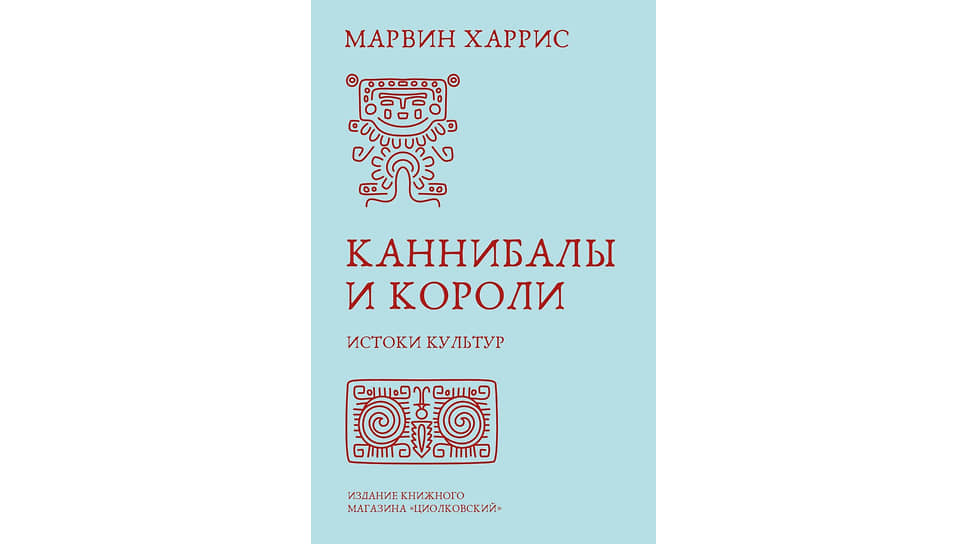
Photo: Tsiolkovsky
Tsiolkovsky
Translation Nikolay Protsenko
Marvin Harris is a classic of American anthropology, a scientist-activist of leftist views, skeptical, however, of orthodox Marxism, and also fiercely fought with postmodern theories. First published in 1977, Cannibals and Kings is a condensed history of humanity from primitive societies to the industrial age, written from the perspective of “cultural materialism,” as Harris himself called his methodology. The idea here seems to be quite familiar: human culture with all its elements – kinship systems, power structure, religion, food practices (including the titular cannibalism) – is determined by the economy, relations of production. However, unlike true Marxists, Harris does not believe in progressive linear development, progress (and here he is seen as a man of the 1970s). On the contrary, from ancient times to this day, humanity has faced similar problems over and over again: the depletion of natural resources, the redistribution of power due to new technologies, and so on. That is why primitive societies can teach us a lot.
Adib Khalid “Central Asia: from the age of empires to the present day”
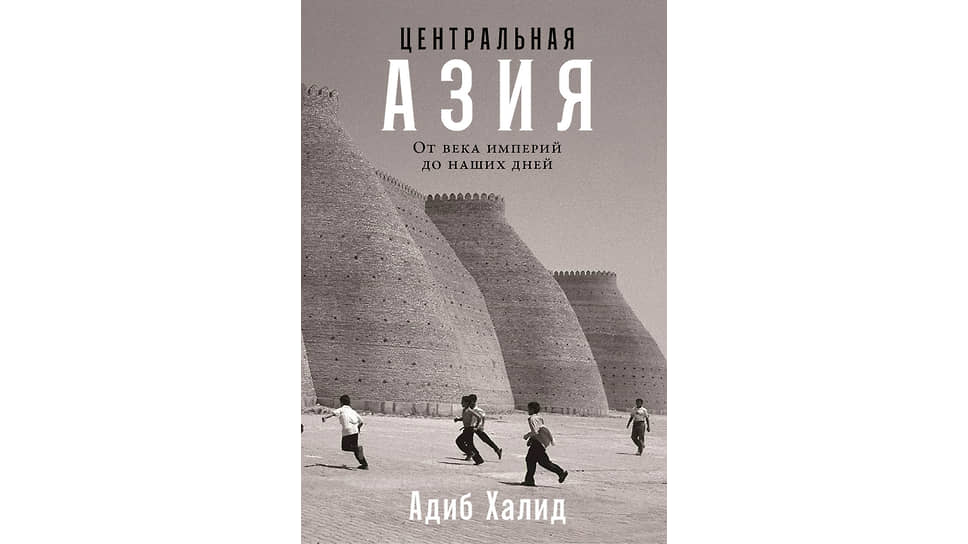
Photo: Alpina non-fiction
Alpina non-fiction
Translation Anna Popova
A volume by Pakistani-American historian Adib Khalid – a history of Central Asia from the 18th century to the present. The boundaries of this region are a little blurry. Khalid includes five states formed in the post-Soviet space – Turkmenistan, Uzbekistan, Tajikistan, Kyrgyzstan, Kazakhstan, as well as the Chinese province of Xinjiang. Throughout modern times, Central Asia was the subject of colonial interests of two empires – Russian (later Soviet) and Chinese. For the outside world, this vast territory remained invisible, and in the early 1990s, after the collapse of the USSR, new states appeared on the political map seemingly out of nowhere. At the same time, Xinjiang—populated by Muslims and therefore culturally connected with neighboring post-Soviet territories more closely than with China—came into the focus of the world’s attention—the object of the PRC’s radical totalitarian experiments. Khalid explains in an accessible and thorough manner what happened during these three centuries and how the Central Asian states are now dealing with their colonial legacy.
Stanislav Drobyshevsky “Why giraffes did not become people and other questions of evolution”
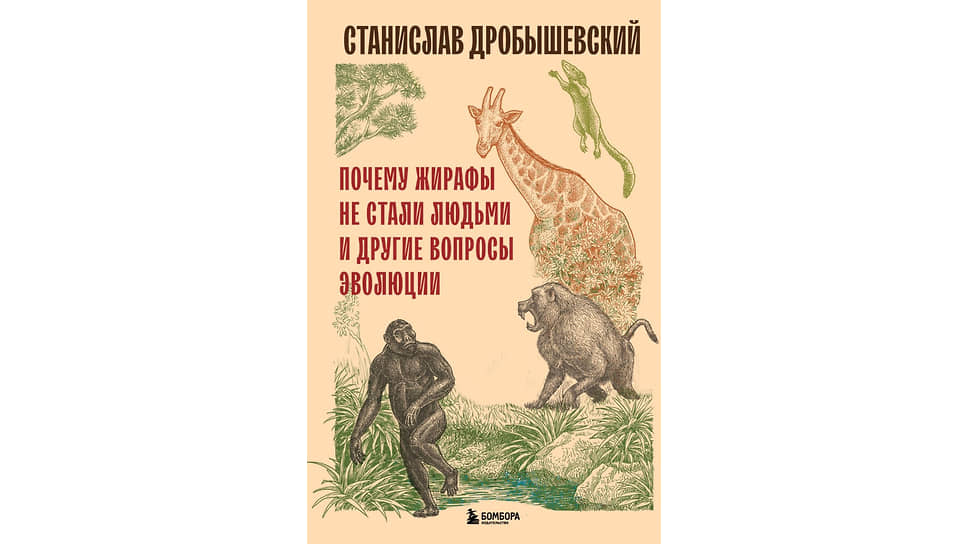
Photo: Bombora
Bombora
The new book by the famous paleontologist and popularizer of science Stanislav Drobyshevsky is a funny intellectual experiment, a kind of parallel biographies of two species – people and giraffes. We are accustomed to an anthropocentric history of evolution. Drobyshevsky does not abandon it, but introduces a second center – the most graceful creatures among all mammals. This story portrays our distant ancestors as both proto-humans and proto-giraffes. The story begins in the Cretaceous period, when both are one species of prehistoric placental mammals, most reminiscent of modern shrews, and then bifurcates into two intertwining narratives: people and giraffes descend from the trees together, change feeding habits, run from predators, travel there and here across the continents and are gradually acquiring their modern appearance.
Matteo Pasquinelli “Measure and impose”

Photo: Individual
individual
Translation Ivan Napreenko
The book by Italian philosopher Matteo Pasquinelli is very different from most of the literature on artificial intelligence. Firstly, Pasquinelli is equally alien to techno-optimism (AI will transform our entire lives and allow us to build an absolutely rational society) and techno-pessimism (computers will deprive us of all our jobs and then take over the world). Secondly, he proposes to go beyond the technology itself, to see in artificial intelligence a certain system of production relations, an economic phenomenon. That’s why programming theorists like Frank Babbage and Alan Turing appear here alongside economists from Karl Marx to Friedrich von Hayek. According to Pasquinelli, for both enemies and admirers, artificial intelligence becomes the object of a peculiar, completely fetishistic cult. By submitting to it, we begin to believe that human thinking is simply a system of algorithms. The challenge is to bring true invention back into it.
Subscribe to Weekend channel in Telegram
[ad_2]
Source link






